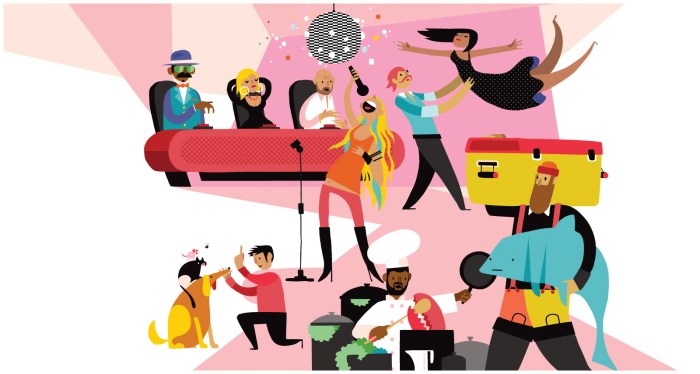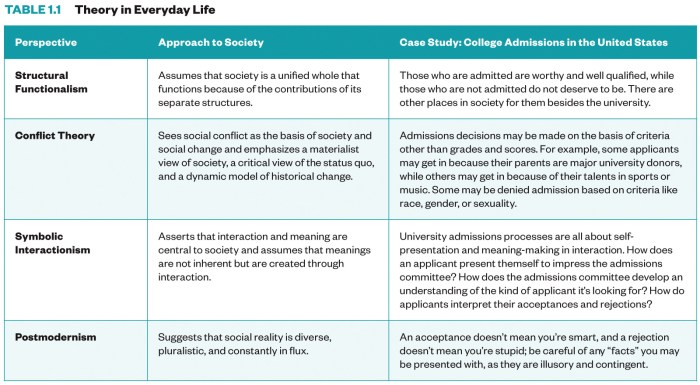The real world an introduction to sociology 8th edition free – Embark on an enlightening journey with “The Real World: An Introduction to Sociology, 8th Edition.” This comprehensive guide unveils the intricate tapestry of human society, empowering you with a profound understanding of its structures, dynamics, and complexities. Prepare to delve into the fascinating realm of sociology and gain invaluable insights into the world around you.
Sociology, the scientific study of society and social behavior, offers a unique lens through which we can examine the interplay of individuals, groups, and institutions. This introductory text provides a thorough exploration of the core concepts of sociology, including culture, social interaction, and social stratification.
By delving into real-world examples and case studies, you will gain a practical understanding of how sociological principles manifest in our everyday lives.
The Sociological Perspective
Sociology is the scientific study of society, culture, and social interaction. It provides a unique perspective on the world that helps us understand how individuals and groups behave, interact, and shape their surroundings.
Sociologists use a variety of research methods to gather data about social phenomena, including surveys, interviews, observations, and experiments. They analyze this data to identify patterns and trends, and to develop theories about how society works.
Core Concepts of Sociology, The real world an introduction to sociology 8th edition free
- Society:A group of people who live in a defined territory and share a common culture.
- Culture:The shared beliefs, values, norms, and behaviors of a group of people.
- Social interaction:The process by which people communicate and exchange ideas, feelings, and behaviors with one another.
Examples of Sociological Perspectives
- A sociologist might study how the media shapes our perceptions of race and gender.
- A sociologist might study how poverty affects children’s educational attainment.
- A sociologist might study how social media is changing the way we communicate and interact with each other.
Culture and Society
Culture is a complex and dynamic system of shared beliefs, values, norms, and behaviors that shapes the way we live our lives. It is transmitted from one generation to the next through socialization, the process by which we learn the values and behaviors of our society.
Components of Culture
- Norms:Rules that govern behavior in a society.
- Values:Beliefs about what is good and bad, right and wrong.
- Beliefs:Ideas about the world and our place in it.
Relationship between Culture and Society
Culture and society are closely intertwined. Culture shapes the way we live in society, and society in turn shapes our culture. For example, the values of a society will influence the way its members behave, and the norms of a society will determine what is considered acceptable and unacceptable behavior.
Socialization and the Life Course
Socialization is the process by which we learn the values and behaviors of our society. It begins in childhood and continues throughout our lives. The agents of socialization include our parents, teachers, peers, and the media.
Impact of Socialization
Socialization has a profound impact on our lives. It shapes our identities, our values, and our behaviors. It also helps us to develop the skills we need to function in society.
Agents of Socialization
- Parents:Parents are the most important agents of socialization in our early years. They teach us the basic values and norms of our society.
- Teachers:Teachers help us to develop our intellectual and social skills. They also teach us about the history and culture of our society.
- Peers:Peers are our friends and classmates. They help us to learn about different perspectives and to develop our own identities.
- Media:The media, including television, movies, and the internet, can also influence our socialization. They can teach us about different cultures and lifestyles, and they can shape our values and beliefs.
Social Stratification and Inequality
Social stratification is the division of society into different social classes. Social inequality is the unequal distribution of resources, such as income, education, and power, among different social classes.
Forms of Inequality
- Economic inequality:The unequal distribution of income, wealth, and other economic resources.
- Educational inequality:The unequal distribution of educational opportunities and outcomes.
- Political inequality:The unequal distribution of power and influence in society.
Causes and Consequences of Inequality
Social inequality is caused by a variety of factors, including discrimination, poverty, and lack of opportunity. It can have a negative impact on individuals and society as a whole.
Social Institutions

Social institutions are organized patterns of behavior that meet the basic needs of society. They include the family, education, religion, and the economy.
Functions of Social Institutions
- Provide stability and order:Social institutions provide stability and order to society by establishing rules and norms for behavior.
- Meet basic needs:Social institutions meet the basic needs of society, such as food, shelter, and education.
- Socialize individuals:Social institutions socialize individuals into the values and norms of society.
Major Social Institutions
- The family:The family is the basic unit of society. It provides a sense of belonging and security, and it teaches individuals the values and norms of society.
- Education:Education provides individuals with the knowledge and skills they need to function in society. It also helps to develop individuals’ critical thinking and problem-solving skills.
- Religion:Religion provides individuals with a sense of purpose and meaning in life. It also teaches individuals about the values and norms of society.
- The economy:The economy provides individuals with the goods and services they need to survive. It also creates jobs and opportunities for individuals to earn a living.
Social Change and Globalization: The Real World An Introduction To Sociology 8th Edition Free

Social change is the process by which society changes over time. It can be caused by a variety of factors, including technological innovation, economic development, and political change.
Globalization
Globalization is the process by which the world is becoming increasingly interconnected. It is driven by advances in transportation and communication technology.
Impact of Globalization
Globalization has a significant impact on societies around the world. It can lead to economic growth and development, but it can also lead to increased inequality and environmental degradation.
FAQ Resource
What is the main focus of “The Real World: An Introduction to Sociology, 8th Edition”?
This introductory text provides a comprehensive overview of the core concepts of sociology, including culture, social interaction, and social stratification.
How does this book help readers understand real-world phenomena?
The book utilizes real-world examples and case studies to demonstrate how sociological principles manifest in our everyday lives.
What are the key takeaways from this sociological exploration?
Readers will gain a profound understanding of the structures, dynamics, and complexities of human society, equipping them with the knowledge and critical thinking skills to engage in informed discussions about pressing social issues.